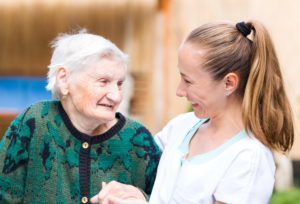
20th May 2022
The “What Do Older People Want from their Healthcare?” project, conducted by the National Ageing Research Institute (NARI) on behalf of the Victorian Department of Health (DH), Australia, provides valuable insights into what older Victorians want, need and expect across each domain of ageing and highlights how this changes across the care continuum.
A new report by the National Ageing Research Institute (NARI), Australia, has revealed older Victorians have a lack of trust in, and understanding of, the health and aged care systems.
The Report – ‘What do older people want from their healthcare?’ – conducted on behalf of the Victorian Department of Health (DH), found less than 50 per cent of respondents were aware of the healthcare services available to them.
However, taking an active role in management of health was deemed to be very important by 82 per cent of older people, and more than 75 per cent said living independently in their own home for as long as possibly was a top priority.
“The Royal Commission into Aged Care Quality and Safety highlighted that older Australians want to remain at home. This research reaffirms this, but also shows there is a lack of faith in our health and aged care systems’ ability to provide adequate support,” NARI Acting Executive Director, Associate Professor Frances Batchelor, said.
The Report found trust in the aged care system to be particularly low, with almost 50 per cent of older people revealing they do not trust that they would receive good care in residential aged care, while 41 per cent consider residential aged care facilities to be depressing places. A further 22 per cent of older people surveyed do not understand the My Aged Care system.
“One of the key things older people want is to be heard, and this Report is an important avenue for their voices. If we listen, the challenges older people and their carers are facing can be planned for and addressed,” Associate Professor Batchelor said.
Based on this research, NARI has identified the core priorities of older people as being:
- For their opinions regarding health and wellbeing to be heard;
- Choices to be built into their healthcare;
- Support to identify, navigate, access, and use healthcare services;
- Effective communication with service providers; and
- Healthcare that is integrated and responsive to their needs.
More than 1 million Victorians are aged over 60.
Carers are also feeling the strain from a lack of confidence in the system. Less than half of carers felt that caring was a fulfilling experience, and only 16 per cent felt well supported by other carers and services to help share the load. With more than 60 per cent of carers surveyed aged over 65 themselves, there is increased likeliness that they will have increasing health needs of their own.
“Older people and their carers want and deserve support that is informed by their needs, priorities, and expectations,” Associate Professor Batchelor said.
“We hope this Report, and the important findings within it, will help inform government and create a starting point for much needed change within the system.”
The research included a survey of almost 300 older people across Victoria, between April 2019 and February 2020.
For further information regarding the project, please contact Associate Professor Frances Batchelor (Acting Director-NARI) via e-mail: f.batchelor@nari.edu.au
Dynamic knowledge synthesis in local networks for coherent elderly care
We are getting older and more diverse, and that brings challenges. We cannot solve these challenges through healthcare alone. We also need municipalities, schools, companies, housing associations and older people themselves to achieve an age-friendly society. This requires cross-domain collaboration. But how can we achieve that?
25 April 2024
Event summary – Healthy ageing and longevity in Europe: How do we prepare for the 100-year life?
In partnership with ILC-UK, the ILC Europe Network hosted its inaugural conference in Brussels on 6 March 2024 to explore the challenges and opportunities associated with an ageing European society. Other ILC Global Alliance members in attendance included ILC-Czech Republic, ILC-France and ILC-Netherlands.
March 2024
White paper Arts in Health in the Netherlands: Art deserves a prominent place in healthcare
Much more attention needs to be paid to the positive effects of the use of art in healthcare. Art makes people feel better and helps them to better cope with their illness. Art can also mean a lot in the social domain and prevention, and in shortening hospital admissions.
February 2024


